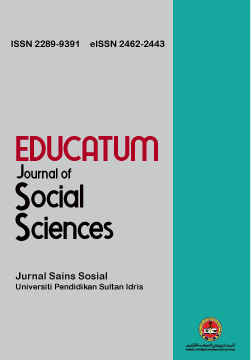Exploring the redesign value of Chinese traditional Auspicious patterns in the context of modern design
DOI:
https://doi.org/10.37134/ejoss.vol9.1.2.2023Keywords:
Chinese traditional auspicious patterns, redesign, modern design, transformationAbstract
Chinese traditional auspicious patterns have a history of thousands of years since primitive times. After the Ming Dynasty, auspicious patterns with multi-element combinations appeared and were widely used in people's lives, but nowadays, their application in life is very scarce. Because their style no longer aligns with the modern aesthetic, they must be redesigned. This paper studies the transformation from traditional Chinese auspicious patterns to modern patterns, mainly using qualitative research, expert interviews, studio research, and questionnaires. The three principles of Chinese traditional auspicious pattern redesign and the APR four-step method summarized in this study can provide a reference value for other auspicious pattern redesigns. It is conducive to their promotion and application to promote the application of auspicious patterns in daily life.
Downloads
References
ARENSKI. Japanese Bead Style Society. (2020) Color Matching Design • Big Principles. Translated by Mulan, Huazhong University of Science and Technology Press.
Chen. L.H., Li Yan.B., & Wen. Z. (2013) Principles of Pattern Design. Beijing Institute of Technology Press.
Gong. X.X. (2017) Analysis and Application of Modeling Elements in Visual Communication Design. China Water and Power Press.
Hu. P. (2011) Pattern Design. Beijing Jiao Tong University Press.
Liu. Q. (2020) Handbook of Visual Communication Design. Qing Hua University Press.
Muhamad Firdaus Ramli(2020)Cultural Sharing Through Visual Art Exhibition ‘Dalam Bingkai’ by JSRB-UPSI with FSRD-ISBI. EDUCATUM Journal of Social Sciences (EJoSS)
Pan Ping (2018). Fusion and variation: The application of Chinese traditional auspicious patterns in modern design. [master's thesis, Art Southeast University] China National Knowledge Infrastructure database.
Wang. L.Z. (2010). Chinese Traditional Auspicious Pattern and Modern Visual Communication Design Shenyang. Publishing House.
Wang. H.L. (2015) Complete Collection of Knowledge of Chinese Traditional Auspicious Patterns. China Meteorological Press.
Xin. Y.H. (2017) Graphic Language Analysis. Peking University Press.
Yang. D.M. (2018) Traditional Decorative Patterns and Modern Decorative Design. Posts and Telecommunications Press.
Yi. R., & Yi. K. (2010) Chinese Traditional Auspicious Patterns and Color Matching. The Dalian University of Technology Press.
Yuan. Q. (2021) Chinese Traditional Auspicious Patterns • Ruyi painting. Zhejiang Ancient Books Publishing House.
Downloads
Published
How to Cite
Issue
Section
License
Copyright (c) 2023 Jing Sun, Arbaiyah Ab Aziz

This work is licensed under a Creative Commons Attribution-NonCommercial-ShareAlike 4.0 International License.





